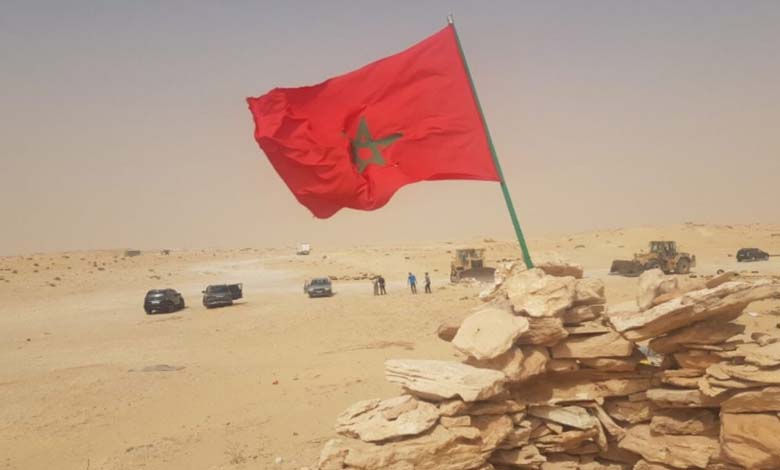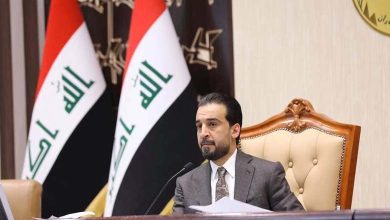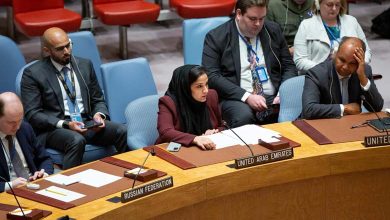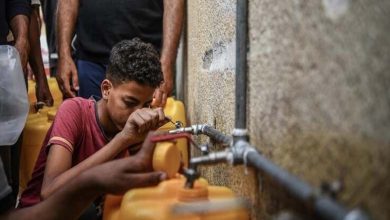U.S. moves to expedite resolution of the fabricated conflict in the Moroccan Sahara
An assistant to the U.S. Deputy Secretary of State responsible for the North Africa region embarks on a tour leading him to Rabat and Algiers. During this time, Washington expresses support for the autonomy initiative under Moroccan sovereignty, considering it the most realistic solution

The United States is pushing to expedite the resolution of the fabricated conflict over the Moroccan Sahara, insisting strongly on its support for the autonomy initiative under Moroccan sovereignty as the most serious and practical solution, which explains the expanding list of countries recognizing the Moroccanity of the Moroccan Sahara.
Joshua Harris, the U.S. Deputy Assistant Secretary of State for North Africa, is leading a new tour to Morocco and Algeria to find a permanent solution to the fabricated conflict. This move is significant in outlining the American stance and dealing with Algeria as a party to the fabricated conflict. It is likely to clarify the situation and deal with it more realistically.
Algeria is viewed as an obstacle to a peaceful solution according to what Morocco proposes within the autonomy initiative in the Sahara under Moroccan sovereignty. This initiative has been gaining international momentum, as evidenced by the increasing acknowledgments of the Moroccanity of the Sahara, with the United States declaring its support for the Rabat initiative as a logical, realistic, and more applicable solution.
The American move is expected to surround all Algerian maneuvers in the fabricated conflict and block the excuses fabricated by the Polisario under the name of a self-determination referendum, hoping to gain external support.
Harris had previously visited Rabat in September, meeting with Moroccan Foreign Minister Nasser Bourita. He emphasized Washington’s firm position in supporting the autonomy plan under Moroccan sovereignty.
The U.S. Department of State’s Bureau of Near Eastern Affairs stated that “Harris arrived in Algeria to begin consultations and then with Morocco on enhancing regional peace and intensifying the United Nations’ political process on the Moroccan Sahara file, with the aim of reaching a permanent solution without further delay.”
Harris’s visit to the region comes amid efforts by the Biden administration to settle the file of the fabricated conflict by embodying the initiative presented by Rabat. This includes convincing all parties of its realism, including Algeria, which funds the Polisario separatist front and provides political cover for its leaders.
The U.S. administration is intensifying efforts to apply the proposal for self-governance under Moroccan sovereignty to persuade it that it represents a permanent solution for stabilizing the region. This comes amid political and security crises in West Africa and the Sahel region, along with the growing influence of Russia.
Harris’s previous visit to Morocco and his announcement of Washington’s strong support for the autonomy initiative dealt a painful blow to the Polisario, especially as the U.S. envoy was clear with the leaders of the separatist front, affirming that the demands for a “self-determination referendum” and “separation from the kingdom” are not relevant to the field reality.
The U.S. Embassy in Rabat stated in a previous statement that “Washington continues to consider the Moroccan plan for self-governance under the sovereignty of the kingdom as serious, realistic, and credible,” emphasizing the “importance of the deep and historical partnership between the United States and Morocco.”
A few days before his previous visit to Rabat, Harris received a report from the African Observatory for Human Rights ‘Africa Watch’, exposing violations amounting to crimes against humanity committed against opposing Sahrawis in the Tindouf camps in southwestern Algeria.
The obstinacy pursued by Algeria in sabotaging many negotiations, including those organized in Switzerland by the former UN envoy, the former German president Horst Köhler, who abandoned his role as a mediator in ending the fabricated conflict over the Moroccan Sahara in 2019 due to his failure to achieve noticeable results.
Relations between the United States and Morocco have seen significant growth since Washington’s recognition of the Moroccanity of the Sahara, providing a strong boost to bilateral cooperation in various fields. There has been a momentum in diplomatic activities and exchanges of visits and meetings between high-level officials of both countries.
Washington and Rabat seek to strengthen security and military partnerships and support stability, especially in the African region, while U.S. Secretary of State Antony Blinken earlier expressed “his country’s support for the ambitious reform program of King Mohammed VI.”
International and regional recognitions of the Moroccan proposal as the only solution to the fabricated conflict are noticeably increasing. Dozens of African and Arab countries have opened consulates in the cities of Dakhla and Laayoune in the southern regions, acknowledging the complete Moroccanity of the Moroccan Sahara.












